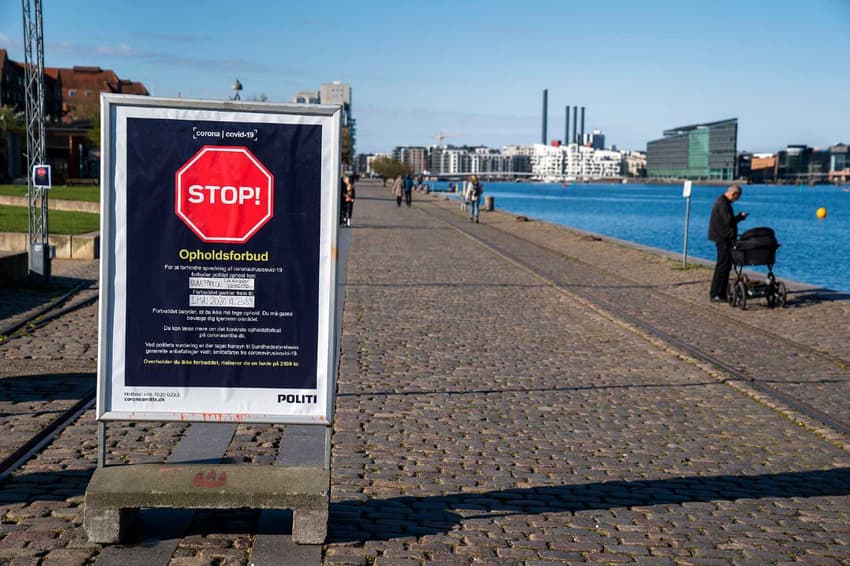Copenhagen police crack down on breaches of coronavirus lockdown restrictions

Police in Denmark have issued fines for people breaching the coronavirus lockdown, while new restrictions have been put in place in central Copenhagen.
On Saturday night at 9pm, a ban went into effect on Islands Brygge in central Copenhagen under a fine of 2,500kr.
The waterfront location had been a popular meeting point during the coronavirus lockdown, however police have now said it is off limits. A group of 200 people had met on Friday night and were “partying and drinking inappropriately”, the police said.
A number of people were fined on Sunday morning for breaching the ban. The police said that while walking in the area is permitted, sitting, picnicking and drinking were all off limits.
Banned until midnight on May 1st
In a press release, the Copenhagen Police said the ban would stay in place until midnight on May 1st.
The police said the ban was justified on the basis that too many people were flaunting lockdown restrictions in the area.
“Yesterday we came out with a warning that we would use tougher tools if citizens do not heed the authorities' instructions and keep their distance. That warning was not taken seriously, with several citizens staying at Islands Brygge. That is why we are now establishing a stay ban in the area,” said Police Director Anne Tønnes.
Comments
See Also
On Saturday night at 9pm, a ban went into effect on Islands Brygge in central Copenhagen under a fine of 2,500kr.
The waterfront location had been a popular meeting point during the coronavirus lockdown, however police have now said it is off limits. A group of 200 people had met on Friday night and were “partying and drinking inappropriately”, the police said.
A number of people were fined on Sunday morning for breaching the ban. The police said that while walking in the area is permitted, sitting, picnicking and drinking were all off limits.
Banned until midnight on May 1st
In a press release, the Copenhagen Police said the ban would stay in place until midnight on May 1st.
The police said the ban was justified on the basis that too many people were flaunting lockdown restrictions in the area.
“Yesterday we came out with a warning that we would use tougher tools if citizens do not heed the authorities' instructions and keep their distance. That warning was not taken seriously, with several citizens staying at Islands Brygge. That is why we are now establishing a stay ban in the area,” said Police Director Anne Tønnes.
Join the conversation in our comments section below. Share your own views and experience and if you have a question or suggestion for our journalists then email us at [email protected].
Please keep comments civil, constructive and on topic – and make sure to read our terms of use before getting involved.
Please log in here to leave a comment.